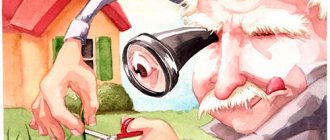Frustration - what does it mean? Imagine that you have been waiting for a concert of your favorite artist for a long time. We took time off from work, bought tickets in advance, and made plans to meet with friends. And suddenly the boss decides that you definitely need to be in the office on this day. How will you feel when you hear this news? Surely it will be disappointment, anger, helplessness and severe resentment. This state is called frustration. Why is it developing? And how to deal with it?
What is frustration - definition in psychology
Frustration is a mental state that occurs when a person, for some reason, cannot satisfy his need or fulfill his desire. In this case, the obstacle is external circumstances or internal reasons.
Frustration occurs under the following conditions:
- An individual has a need or desire that he plans to satisfy.
- An action plan has been drawn up in advance, explaining how and what is best to do.
- On the way to realizing your plans, external or internal obstacles arise, sometimes insurmountable.
In short, by definition in psychology, frustration is a typical reaction to disappointment, unrealistic hopes, and the impossibility of self-realization. All these situations are called frustration. Obstacles that arise on a person’s path are called frustrators or frustrating influences. The reaction to frustration is frustration tension. The higher it is, the more difficult it is for an individual to adapt to new conditions. At this moment, the body’s psychophysiological reserves work at full capacity, which ultimately leads to moral and physical exhaustion.
The state of frustration largely depends on how strong a person’s psyche is. Therefore, it manifests itself in different ways. Someone experiences slight sadness and annoyance. Others face unbearable suffering. In both cases the emotions are negative.
The development of frustration, the strength of sensations and their duration are determined by two factors:
- How important was a goal for a person that he was unable to achieve, or an unmet need. Let's give an example. Let’s say a girl didn’t have time to go to the store, which is why she didn’t buy a new dress for an important meeting. Or a married couple, dreaming of children for a long time, once again encountered failure with IVF. There will be experiences in both cases. But in the second, the state of frustration will be many times stronger.
- Psychological state of a person. Does he know how to find a way out of critical situations, does he have leadership qualities, can he soberly assess the situation and make decisions.
The types of reactions to frustration in the described cases vary. The meaning of the word “frustration” in Greek is the collapse of hopes. So, being disappointed, a person can completely abandon an unattained goal or need. This is one option. There are two others:
- change the goal while maintaining available resources;
- still go forward, simultaneously finding ways to get around the obstacles that stand in the way.
In simple terms, the concept of frustration arises when a person is simply unable to change circumstances. Let's go back to the example with the girl who didn't have time to go to the store. But there are also others that she can stop by before the meeting. This means that she has nothing to worry about. But in the case of the inability to give birth to a child, the situation is more complicated. Here, frustration refers to insurmountable obstacles that are almost impossible to eliminate.
The term frustration (from the Latin fmstratio - “disorder (of plans), collapse (of plans, hopes)”) has two meanings:
• the act of blocking or interrupting behavior aimed at achieving a significant goal (i.e., designating a frustrating situation);
• the emotional state of a person that arises after failure, dissatisfaction of any strong need, reproaches from others. It is accompanied by the emergence of strong emotions: hostility, anger, guilt, frustration, anxiety.
Frustration is caused by an obstacle that is insurmountable for a person, blocking the achievement of his goal.
From the point of view of S. Rosenzweig (1960), any reaction to such a frustrator serves to maintain balance within the body. Domestic psychologists rightly believe that the state of frustration is a personal reaction.
This does not happen right away. For its appearance, it is necessary to overcome the so-called frustration threshold, which is individual for different people. It is determined by a number of both situational and personal aspects:
• repetition of dissatisfaction: a new failure is layered on the emotional trace of the previous one;
• stage of activity: if an obstacle arises at the beginning, aggression is less pronounced than in the case when failure befell a person at the very end;
• depth of dissatisfaction: the stronger the need, the lower the threshold of frustration;
• emotional excitability of a person: the higher it is, the lower the frustration threshold;
• the level of aspirations of the individual, the habit of success: the longer a person has not failed, the lower the threshold of frustration.
It was also found (B. Fagot, 1978; W. Hartup, 1958) that girls are more easily frustrated than boys. However, this pattern is not absolute. A number of psychologists believe that boys experience greater frustration in situations involving statements. As determined by M. Prince (M. Prince, 1993) and M. Lynn (M. Lynn, 1991), in women, stronger frustration is caused by the lack of money.
In addition, the ease of occurrence of the state of frustration also depends on the severity of the property of the strength of the nervous system: in persons with a weak nervous system, this condition occurs with fewer failures than in persons with a strong nervous system.
Types of frustration behavior. Frustration affects human performance in different ways. In some cases, it mobilizes to achieve a distant goal and strengthens the motive. However, forms of behavior can be impulsive and irrational. In other cases, frustration demobilizes a person who either seeks to escape from a conflict situation through substitute actions (a prohibited or unattainable goal is fulfilled mentally or only partially, or a similar task is solved), or abandons the activity altogether.
According to S. Rosenzweig, frustration in its direction has three behavioral forms (reactions): extrapunitive, intrapunitive, impunitive.
The extrapupitative form is associated with the emergence of an internal “inciter” to aggression, with the direction of the reaction to look for the culprit outside. The person blames circumstances and other people for what happened. He develops irritability, annoyance, embitterment, stubbornness, and the desire to achieve his goal at any cost. As a result, behavior becomes inflexible and primitive; its previously learned forms are used, even if they do not lead to the desired result. On the basis of this, even the frustration theory of aggression arose, which was proposed by J. Dollard et al. (J. Dollard et al., 1939). The authors believe that aggression is not an instinct that automatically arises in the depths of the body, but is a consequence of obstacles standing in the way of the subject’s purposeful actions, or the non-occurrence of the state to which the person was striving.
The intrapuitive form of frustration is characterized by auto-aggression, when a person blames himself for failure, he develops a feeling of guilt. As a result, a depressed mood and anxiety are born, the person becomes withdrawn and silent. When solving a problem, he returns to more primitive forms, limits the types of activities and satisfaction of his interests.
The impulsive form of response is associated with an attitude towards failure either as inevitable, fatal, or as an insignificant event that can be corrected over time. The person does not blame himself or others.
According to N.V. Tarabrina (1973) and K.D. Shafranskaya (1976), extrapunitive reactions predominate most often (50% of cases), intrapunitive (self-accusatory) reactions are almost half as common (27%) and even less often impunitive (23%). ). Men have more extrapunitive reactions, and women have more intrapunitive reactions.
N.P. Fetiskin (1982) found that subjects with an extrapunitive form of response have a strong nervous system and mobility of nervous processes, while those demonstrating impunitive and intrapunitive forms have a weak nervous system and inertia of nervous processes. The connection between various forms of response to frustration and typological characteristics has been established in other studies (T. O. Amon, 1975).
The appearance of a state of frustration and one form of response or another depends on a person’s personal characteristics, which is why the concept of frustration tolerance was proposed, i.e., resistance to the factors that caused frustration.
Persons with a weak nervous system more often show an intrapunitive form of frustration, and those with a strong nervous system - extrapunitive (aggression). V. E. Vasilenko (1998) argues that extrapunitive reactions are associated with intelligence in a negative way, while intrapunitive and impunitive reactions are associated in a positive way. In elementary school students, the first forms of reaction predominate. V. Kharmaz (1997) revealed a pronounced impunitive orientation among Iraqi emigrants living in Sweden, especially among men. In their children, self-defensive and intrapunitive reactions predominated, reflecting a tendency to self-blame. In Russian children, according to the same author, the number of extrapunitive reactions decreases with age, which, in his opinion, indicates a decrease in the need to directly and openly express their emotions. This trend is not observed among Iraqi emigrant children: the impulsive type of response dominates in all age groups, which V. Kharmaz associates with the peculiarities of the upbringing of these children (increased dependence on older ones, a tendency to subordination, obedience).
As shown by M.A. Gulina (1987), extrapunitive reactions are most characteristic of individuals of the extroverted and anxious type, highly emotional; intrapunitive ones are more characteristic of introverts with an average level of anxiety and to a lesser extent - introverts with increased anxiety and emotionality.
A study of the types and direction of frustration in groups of men and women, which was conducted by I. A. Yurov (1981), showed; in the frequency of manifestation of types of reactions (0-D - emphasizing the presence of obstacles, obstructive-dominant type; N-P - emphasis on achieving a result, permissive type; E-D - emphasis on self-defense, self-defense type) there are no special differences, but in the direction In men, option E (search for the culprit outside, extrapunitive reactions) is slightly more common, and in women – option M (absence of accusations, non-accusatory reactions). Regarding option / (intrapunitive, self-accusatory reactions), no differences were found between men and women.
According to V. A. Yakunin (1981), the direction of reactions was dominated by external non-accusatory reactions (58.7%), and by type - self-defensive (46.7%), which corresponds to the trends identified by I. A. Yurov. Intercorrelation analysis showed that individuals with a predominance of externally accusatory reactions are less likely to exhibit permissive type reactions. The latter type tends to be exhibited by persons with a self-accusatory direction of reactions, which, however, are not characterized by reactions of a self-defensive type. Subjects who have a predominance of non-accusatory reactions show reactions of the obstructive-dominant type with a greater frequency and, to a lesser extent, of the self-protective type.
This study revealed connections between types of frustration reactions and a number of personality characteristics (according to Cattell). Thus, externally blaming reactions are positively associated with emotional lability (QII), and self-accusatory reactions are positively associated with shyness (factor O) and introversion, and negatively with dominance (factor E) and anxiety (QII). Non-accusatory reactions are positively associated with dynamism (factor F), realism (factor M) and negatively with shyness and introversion. The obstructive-dominant type is negatively related to refinement (factor N), the permissive type is negatively related to conservatism (factor QI), and the self-protective type of reaction is positively related to radicalism and refinement.
In a socially frustrating situation, women are more likely to have an intrapunitive reaction orientation associated with self-blame (A.I. Vinokurov, 1996).
Several classifications of styles of moral behavior have been empirically described: integrated - non-integrated (Hortshorn and May, 1930), submissive - anxious - aggressive - constructive (Pulkkinen, 1987), pragmatic - altruistic (Valantinas, 1989) {TereshkinA. F. Integral System Research™. Perm, 1991. P. 91).
Theories of frustration
The state of frustration has always been a lively discussion in the world of psychology. This has led to several related theories.
D. Dollard's theory
According to this theory of frustration, it is closely related to aggression. The nature of this emotion has been studied by many scientists. And here's what they found out:
- Biologists believe that the gene for aggressiveness is inherent in a person from the moment he is born. In men, due to the greater amount of testosterone, it manifests itself more strongly, and in women it is weaker.
- Sigmund Freud said that aggression indicates self-destruction and that a person is not satisfied sexually.
- Sociologists are confident that the reason for aggressive behavior lies in relationships within the family.
As for Dollard's theory, it says that aggression invariably brings with it experiences and vice versa. The strength of aggression directly depends on the significance of the unachieved goal and the difficulty that stood in the way of achieving it. But this is not the most interesting thing. According to the scientist, this negative emotion is directed not at obstacles or circumstances, but at those people who have nothing to do with them.
Dollard's theory has been heavily criticized because frustration is a concept characterized not only by aggression, but also by a number of other negative emotions, such as melancholy and despondency.
Theory by K. Lewin, R. Barker, T. Dembo
According to these scientists, frustration contributes to regression. In psychology, this is the name for a state in which a transition occurs from one form of development to another, weaker one. For clarity, we can cite the example of elderly people who in old age become like children, both in behavior and emotionally.
In the case of frustration, the situation looks something like this: a disappointed person tries to protect himself from unpleasant emotions. Regression occurs - a kind of defense mechanism. The individual relieves himself of all responsibility for not achieving his goals, refuses further action and simply gives up.
N. Mayer's theory
According to this theory, frustration robs people of their ability to set goals. They focus on failures, which makes them unable to look forward and change something in their lives. The result is chronic apathy.
Maslow's theory
Remember Maslow's pyramid of needs? So, he said that the strength of frustration depends on the level of unsatisfied need. For example, not getting a desired position will cause stronger feelings compared to not buying a dress or not watching a movie premiere.
Difference from other conditions
A layman can confuse psychological terms without causing problems. It’s another matter if the specialist who was consulted does not know the definitions; or the correctness of their use in the article is questioned. Frustration has clear differences from the following conditions.
Stress
This is the cause of unpleasant emotions.
Stress is a permanent or one-time aspect of life that causes tension:
- hard work;
- separation from a partner;
- death of a relative;
- reporting illness;
- car breakdown, etc.
Frustration is a consequence of a reaction to these events when a person fails to correct the situation.
Deprivation
The term describes a situation where a person has lost or severely limited access to sources of satisfaction of basic needs. Experts from the University of Texas describe deprivation with the help of banana lovers:
“Imagine you are walking through your local supermarket and you see a person loading these fruits into a cart. He took all the bananas, making it impossible for you to get them."
Another explanation has been used for frustration:
“You are promoting a bill in your local government. The document meets the requirements and improves political and social protocols, and, given the events in the region, is necessary. But the majority voted against him.”
Frustration is a type of deprivation. The person does not get what he wants. The difference is that the condition is caused by excessive demands; the individual builds unrealistic illusions that cannot be realized.
Prostration
Exhaustion, loss of mental and physical strength. In this case, there is no interest in goals and barriers to achieving them. The condition occurs due to prolonged mental or physical stress. It can also be a reaction to severe stress.
Signs of frustration
Signs of frustration do not always manifest themselves in full force, so this condition often goes unnoticed. But it is still possible to diagnose it.
So, the following symptoms are characteristic of frustration:
- Focus on the problem situation. A person cannot think about anything else, which is why he ignores what is happening in other areas of life.
- Helplessness, hopelessness. The individual realizes that he needs to be distracted, but he is not able to do this.
- An ongoing feeling of inner anxiety, melancholy. It seems that life has lost its colors. All this provokes the development of a depressive state.
- Decreased performance, laziness, apathy. The desire to do anything completely disappears. Motivation goes away along with it.
- Low self-esteem, guilt, lack of confidence in yourself and your abilities.
To the listed signs of frustration one can add indulgence, isolation, and refusal of any contact with the world.
Causes
Conventionally, the causes of frustration are divided into 3 groups:
- Social, moral, ethical. In any of his actions, a person takes into account social norms or even his own concepts of what is good and what is bad. An example is sexual dissatisfaction associated with the widespread belief that one should not enter into intimate relationships before marriage.
- Physical, biological. Let's give a simple example of frustration. You planned a serious event, but suddenly you broke your leg and ended up in the hospital. You wanted to carry out your plans, but circumstances played against you.
- Psychological. An individual cannot achieve a goal due to the fact that he considers himself not strong enough, smart enough, etc. He suffers from low self-esteem, some fears, and complexes.
Also, reasons can be divided into external and internal. The first include improper upbringing, frequent conflicts, dissatisfaction with the place occupied in society. The internal reasons for the development of frustration are contradictions in the process of setting goals. Thus, a person can try to simultaneously satisfy desires that are opposite to each other. One will be fulfilled, but the second, accordingly, will not. This is how frustration arises.
Forms
In psychology, there are 3 forms of frustration. The first is extrapunitive. What it is? This is a state when a person believes that circumstances and the people around him are to blame for his failures. He shows aggression towards them and at the same time strives to achieve his goal. It is not possible to achieve what you want, therefore, aggression, as well as frustration in general, intensifies.
The second form is called intrapunitive. It means that a person focuses on himself as the cause of failure. He becomes withdrawn, depressed, and anxious. Added to these negative emotions is a loss of meaning in life and complete apathy. The individual cannot perform even simple everyday activities, in particular, take care of the house and himself.
And finally, the third form of frustration is impunitive. A person shows complete indifference to the difficulties along his path, or considers them fate, predestination. He does not blame anyone for failures, but simply gives up desires and needs or switches to something else.
Differences in response to frustration
The severity and composition of emotions depend on the character of the subject, age, life experience and existing living conditions. But the main factors influencing the overall picture are gender and personality type.
Between man and woman
The weaker sex tends to focus on a problem and analyze it. As a result, women experience stronger emotions. Men tend to abstract themselves from the problem by switching to physical activity or other activities. The unwillingness to pay attention to your experiences will allow you to avoid focusing on minor troubles. But a constant refusal to analyze the situation can lead to repetition of mistakes, accumulation of stress and breakdown.
Men more often react aggressively to the emergence of an obstacle, focusing on a specific object (process) or simply letting off steam. Women also give free rein to their emotions, but they express themselves in tears or seeking support.
Gender characteristics of behavior persist with age. A recent Rutgers University study found that in couples who have been married for 40 years, wives are willing to give and receive emotional support. Husbands are annoyed by such attention to feelings.
Men who have a positive assessment of marriage frustrate their wives by providing their wives with strong emotional support, believing that the energy could be spent on other tasks.
People of different psychotypes
Psychologists and psychiatrists have created several character classifications. There are extroverts and introverts - individuals who seek and avoid communication. Hippocrates divided people into choleric, sanguine, phlegmatic and melancholic. The science of profiling distinguishes:
- hysteroid - a tendency to narcissism and the desire to win the attention of others;
- epileptoid - the desire for power and control, but within the limits of current norms;
- paranoia - readiness to develop and complete assigned tasks, combined with susceptibility to criticism;
- emotive - an exaggerated sense of responsibility for others, a modest appearance and a willingness to follow the lead of manipulators;
- hypertim - cheerful, hyperactive, unable to focus on one goal for a long time;
- schizoid - a tendency to analyze one's own and others' actions before making a decision;
- anxious and suspicious - a combination of demandingness, ethics and inability to withstand pressure;
- depressed-sad - isolation, desire to work alone.
Active psychotypes can react to a frustrating event with outbursts of rage and primitive, aggressive behavior aimed at getting what they want. But there is a possibility that representatives of the first two categories will focus on overcoming or bypassing obstacles.
The actions of passive, more analytical individuals will be uncertain. Some will focus on finding the reasons for failure in themselves, others will fall into a stupor, others will switch to a new process or try to resume the implementation of a stalled one.
Types of frustration
Types of frustration differ from each other in the area of life in which a person was unable to get what he wanted. There are several of them.
Love and sexy
The first appears in cases where there is a break in relationships or some serious problems. Without receiving reciprocal feelings, a person experiences an increase in his attraction to the object of passion. Such an emotional outburst sometimes leads to inappropriate behavior, manifested in an obsessive desire to meet or even violence.
Frustration looks almost the same in existing families, when one of the partners does not receive from the other what he needs, for example, attention. The lack of what you want causes a lot of negative emotions. It doesn’t matter what kind of relationship there is in the family.
As for the intimate sphere, frustration here is not much different from love. Without receiving satisfaction, the partner becomes aggressive and irritable.
Social
Social frustration occurs in cases where there are conflict situations in relationships with society. It appears if a person cannot get the desired position, social status, the opportunity to study at the chosen educational institution, etc.
It is worth noting that diseases that limit mental and physical activity are also involved in the development of social frustration.
Frustration of needs
We are talking about Maslow's pyramid of needs mentioned above. Failures and mistakes are not needed to develop this type of frustration. It occurs after the need is satisfied. Why? Because the individual faces a new goal. And so on in a circle. The inability to satisfy absolutely all existing needs causes frustration.
Frustration in relationships
We are not talking about romantic relationships, although this type of frustration is most often mentioned in connection with them. It's about relationships with people around you. Disappointment, aggression, and resentment arise in cases where an individual cannot defend his opinion and makes concessions, does what he does not want. Unable to refuse, he gives in to his opponent, which is why he subsequently experiences anger and other unpleasant emotions.
False
This state is similar to frustration with expressed emotions. But they have less power. You can cope with them without resorting to the help of a specialist.
False frustration occurs when the functioning of those parts of the nervous or endocrine system that are responsible for emotions is disrupted. For example, an excess amount of adrenaline causes emotions in a person similar to those that appear during frustration.
Existential
Existential frustration is a condition characterized by disappointment in life in general. An individual loses the meaning and purpose of existence for many reasons. Among them:
- dismissal amid high unemployment;
- retirement;
- completion of training in the absence of the opportunity to get a job in the specialty;
- complicated divorce;
- economic and political changes in the state.
It is difficult for a person to adapt to new conditions. He does not see opportunities to realize his abilities, so he experiences boredom and apathy. Over time, such circumstances lead to the development of neurosis. And it entails a deterioration in relationships with others, an attraction to alcohol and drugs.
Types of situations
Existential crisis - what does it mean?
Not everything that happens can be considered frustration. In psychology, there are several types of situations that were identified by S. Rosenzweig. He divided them into three large groups.
The first is privative frustration, in which a person cannot possess/master the desired object. The second group is deprivation, in which the individual loses the object he needs. The third group is conflict. They arise when there are internal and external contradictions, when a person is faced with the impossibility of getting what he wants.
Disappointed man
Some psychologists have their own point of view on the meaning of the term “frustration”, what it is and how it manifests itself. They distinguish two types of condition. External - appears under the influence of factors that do not depend on a person.
Important! Simple examples are the death of a loved one, layoffs at work, or a serious illness.
Internal frustration appears when there are mental problems: anxiety, uncertainty, panic attacks, depression. Everything is aggravated when there are contradictions in the soul. If a person understands that his desires do not coincide with the real state of affairs, then he finds himself in a vicious circle.
When frustrated, he experiences anger, disappointment, despair and cannot take measures to improve the situation. Against this background, the individual develops neurosis and suicidal thoughts.
Consequences
So what is frustration? These are negative emotions caused by the inability to get what you want, insurmountable obstacles to achieving your goal. Ideally, the response to frustration should be positive. This means that a person is looking for ways to get around problems and difficulties or learning from mistakes made. But it also happens that the negativity drags on. In these cases, emotional frustration has the following consequences:
- Aggression. This emotion can be directed at a problem or circumstance, or at people who have nothing to do with the situation. It manifests itself in the deliberate creation of conflict situations, hostility and even physical violence. The individual cannot control himself.
- Auto-aggression. The same as aggression, only it is directed at oneself. The main manifestation is self-destruction. A person deliberately risks his life, ignores the body’s alarm signals and refuses treatment, and develops bad habits.
- Retreat. In this case, one of the defense mechanisms is used - depreciation. A person who cannot get what he wants reduces its importance. This happens not only in words, but also in behavior. So, he can perform impulsive actions and make strange decisions.
- Regression. It was said above that during regression, trying to protect oneself from negative emotions and experiences, a person returns to the previous level of emotional development. It all looks something like this: having failed to achieve his goals, he freaks out, cries, and blames those around him for everything.
- Fixation. The individual realizes that he will not be able to fulfill a desire or satisfy a need. Therefore, he simply “fixes” himself in his normal state. He lives the same way as before, but aimlessly.
- Pointless activity. Experiencing strong anger and other negative emotions, a person decides to channel them in what he thinks is the right direction. But in fact, all his actions are meaningless and disordered. They don't bring any benefit.
And, probably, the most common consequence of frustration is apathy. Its main danger is the high risk of developing into depression.
Causes of frustration
The state of frustration is caused by obstacles that interfere with the activity necessary to achieve the goal. We are talking about prohibitions, physical and moral obstacles, contradictions. There are obstacles:
- physical (arrest);
- biological (aging, disease);
- psychological (fear, lack of knowledge);
- socio-cultural (norms, taboos of society).
Strong motivation to achieve a goal and significant obstacles along the way are two main conditions for frustration. As a result, a person either activates all his forces and looks for alternative ways to achieve this goal (not always rational, often impulsive), or abandons the goal (achieves it partially or in a perverted way).
The simplest and most common option is addictive (dependent) behavior, but this is the wrong response. Addictive behavior in response to frustration can be a variant of learning (parents set a personal example), compensatory behavior, or inadequate psychological defense.
How to get rid of frustration
First you need to learn to control negative emotions. It is important to eradicate them at the moment they appear. Thanks to this, you can avoid senseless, impulsive actions. Self-regulation techniques, for example, concentration on breathing, will be of great help in this.
The next step is to think about what prevented you from getting what you want or achieving your goal. If the problem can be solved, look for a solution. If this is not possible, replace the goal, increase the time frame for achieving it, and set several intermediate tasks.
The third step is to meet and communicate with those people who have already encountered frustration and were able to overcome it. This will help you realize that you are not alone. In addition, perhaps the experience of new acquaintances will be useful to you in your situation.
What else will help cope with frustration?
- Look at yourself from the outside. Is it really that bad? Maybe we shouldn’t stop and give up?
- Think about it, is the fulfillment of your desire so important to you? Is it related to fashion, stereotypes or public opinion?
- Make an action plan. If you decide that your desire needs to be fulfilled at all costs, but there is no such opportunity now, think about what you can change. Carefully study all the steps that can be taken in the direction you need. Make a detailed plan. Assess the difficulty of each item.
- Decide on a deadline. Set a date by which you will implement each item in the plan. Just don't overestimate your strength. Remember that you are human. Under no circumstances set yourself impossible tasks, otherwise your frustration will only increase.
- Be patient. Don't forget that you won't be able to achieve your goal in a day or two.
And one more important piece of advice: rest. Emotional fatigue is an obstacle that will prevent you from working effectively. Therefore, take breaks, for example, set aside time for a hobby.
Examples of frustration from life
Probably every person has encountered frustration. Imagine a situation familiar to many: a man is going to watch an important football match for him. He did everything in his power to achieve this: he agreed with his boss to leave early, bought his favorite beer and snack, and invited friends. The first difficulty is a traffic jam. But it has been successfully overcome. The match starts at 17-00, there is still time to prepare. And now the guests are assembled, the table is set, the referee is preparing to blow the whistle to start the match. And suddenly, due to scheduled work, the electricity goes out. Frustration arises.
In this case, the difficulties that stand in the way of the hero can be overcome, for example, by going with friends to a sports bar.
I'll give you an example from my life. I get frustrated in the morning. Usually in the evening I draw up a rough action plan and set an alarm for a certain time. It seems simple. But in the morning I manage to miss the alarm and oversleep. Naturally, I get up after this in a bad mood and with no desire to work at all.
In my situation, the obstacle is also easy to overcome. It is enough to go to bed a little earlier, and in the morning do not lie down, but get up at the first alarm signal.











